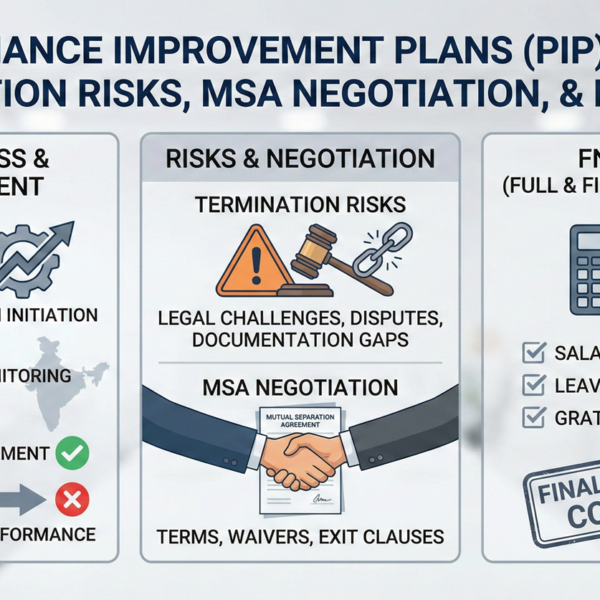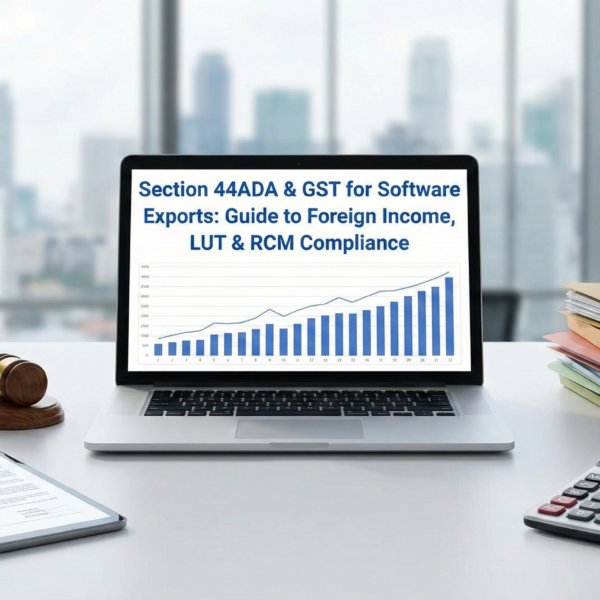A leaking roof, faulty wiring, or persistent damp—these are more than inconveniences; they are potential breaches of your rights as a tenant. When your landlord ignores pleas for essential repairs, the temptation to withhold rent is strong.
But is it legal in India? Before you make a move that could put you on a fast track to eviction, this guide will walk you through the legally correct path. We’ll explore the ‘repair and deduct’ remedy, break down the specific laws for states like Delhi, Maharashtra, and Tamil Nadu, and provide you with the tools—including legal notice templates—to enforce your right to a safe and habitable home.
Evaakil.com
Can a Tenant Legally Withhold Rent for Essential Repairs?
A deep dive into Indian tenancy law, the 'Repair and Deduct' remedy, and why unilaterally stopping rent is a path to eviction.
The Tenant's Dilemma: Two Paths, One Legal
DON'T: Withhold Rent
This is a direct breach of your rental agreement. It hands your landlord a clear, legal reason to start eviction proceedings against you.
DO: 'Repair and Deduct'
Follow the legally prescribed procedure: notify the landlord, wait, repair if they don't, and deduct costs from rent within legal limits.
I. The Legal Bedrock: Habitability and Repair Obligations
1.1 The Implied Warranty of Habitability: A Universal Right
At the core of every tenancy relationship in India lies a fundamental, often unstated, principle: the right to a habitable home. This principle, known as the "implied warranty of habitability," establishes that a landlord is providing a dwelling that is safe, clean, and fit for human occupation. This right exists even if not explicitly written into the rental agreement. A habitable property is structurally sound, weatherproofed, and compliant with health and safety codes, encompassing essential systems like plumbing and electrical wiring.
1.2 Delineating Responsibilities: Landlord vs. Tenant
Indian tenancy laws create a structured division of maintenance duties. While the rental agreement is the ultimate guide, a general legal standard exists.
Landlord's Duties (Major/Structural)
- Structural Repairs (roof, walls, foundation)
- Essential Systems (plumbing, electrical)
- Repairs from normal wear and tear
- Ensuring supply of basic utilities
Tenant's Duties (Minor/Routine)
- General cleanliness and sanitation
- Responsible use of fixtures and appliances
- Minor day-to-day repairs (e.g., bulbs, tap washers)
- Repairing self-caused damage
- Promptly notifying landlord of major issues
1.3 The Critical Distinction: Why Unilaterally Withholding Rent is a Path to Eviction
Withholding rent is a legally perilous strategy. The law treats the tenant's obligation to pay rent and the landlord's obligation to carry out repairs as two separate covenants. A breach by one party does not automatically excuse the other. Your non-payment gives the landlord a direct and powerful reason to evict you, turning a winnable repair dispute into a likely eviction.
II. The Model Tenancy Act, 2021: A New Paradigm
The Model Tenancy Act (MTA), 2021, is a framework designed to professionalize the rental sector. It mandates written agreements, establishes a three-tier system for dispute resolution (Rent Authority, Court, Tribunal), and brings clarity to repair responsibilities through Section 15 and Schedule III. Crucially, Section 15(4) grants tenants a clear 'repair and deduct' right: if the landlord refuses to do scheduled repairs, the tenant can get the work done and deduct the cost from the rent. However, this is capped: the deduction in any one month cannot exceed 50% of that month's rent. For severe issues making the property uninhabitable, Section 15(5) allows the tenant to abandon the premises after giving 15 days' written notice.
III. State-Wise Analysis of the 'Repair and Deduct' Remedy
While the MTA provides a modern blueprint, the legal landscape is a patchwork of state laws. The right to 'repair and deduct' exists in many statutes, but procedures, limits, and dispute forums vary significantly. Below is a detailed look at key states, followed by an interactive tool to compare them.
Delhi (DRCA, 1958)
Delhi's law is bureaucratic, creating a two-tiered system. For general repairs, a tenant can deduct up to 1/12th of the annual rent after notice. For major repairs affecting habitability, the tenant must apply to the Rent Controller for permission before acting; the deduction is then capped at half the annual rent. This state oversight can cause significant delays.
Maharashtra (MRCA, 1999)
Maharashtra offers a more direct, tenant-empowering framework. After a 15-day written notice, a tenant can perform repairs and deduct up to 1/4th of the annual rent. Crucially, Section 14(3) makes the tenant's documented vouchers "conclusive evidence" of the expenditure, a powerful tool that strengthens the tenant's position.
Tamil Nadu (TNRRRLT, 2017)
Adopting a modern approach similar to the MTA, Tamil Nadu allows a tenant to 'repair and deduct' after notice. The key feature is a practical monthly deduction cap: up to 50% of one month's rent. This allows tenants to recoup costs much faster than annual caps, making the remedy more financially viable.
Karnataka (KRC Act, 1999)
Karnataka's law frames repairs as a negotiation, linking them to potential rent increases. While tenants can claim repair costs, the primary route is an application to the Controller. The structure encourages dialogue before unilateral action, giving the landlord more control over costs but potentially slowing the process for the tenant.
West Bengal (WBPTA, 1997)
West Bengal has a highly interventionist "Mother-May-I" approach. The tenant cannot act independently. They must apply to the Rent Controller, who then directs the landlord. If the landlord still fails, the tenant must go back to the Controller for permission to perform the repairs. There is no direct 'repair and deduct' right.
Filter & Compare State Laws
| Feature |
|---|
Visualizing Deduction Limits
This chart compares the maximum amount a tenant can deduct for repairs. Note that some limits are annual (blue), while others are monthly (teal).
IV. What Constitutes "Essential Repairs"?
For a tenant to lawfully use the 'repair and deduct' remedy, the work must be "essential." While not exhaustively defined, this generally includes issues that affect the safety and habitability of the home.
Statutory and Judicial Guidance
Statutes like the Delhi Rent Control Act define 'essential supply or service' to include water, electricity, lights in passages, and sanitary services. The Model Tenancy Act adds lifts to this list. Courts have interpreted these terms broadly. For instance, a non-functional bathroom has been deemed an essential service. The term "tenantable repairs" generally means repairs needed to keep a property fit for habitation, distinct from cosmetic upgrades. The lack of a rigid list is intentional, allowing courts to make context-specific decisions based on evidence.
Likely Landlord's Responsibility
- ✔ Waterproofing & Structural Integrity
- ✔ Major Plumbing & Sanitation Issues
- ✔ Faulty or Unsafe Electrical Systems
- ✔ Failure of Essential Utilities (Heating, Lifts)
- ✔ Serious Pest Infestations
Likely Tenant's Responsibility
- ✖ Replacing fused light bulbs
- ✖ Fixing minor dripping taps
- ✖ Routine cleaning
- ✖ Repairing self-inflicted damage
V. The Procedural Blueprint: A Step-by-Step Guide
In tenancy law, procedure is everything. Deviating from the prescribed steps can render your actions unlawful. Follow this blueprint to assert your rights correctly.
Build Your Case
Gather evidence: Take dated photos/videos, keep a log of all communication, and get a preliminary quote from a professional.
Serve Formal Notice
Send a written notice via Registered Post with A.D. detailing the repairs and setting a reasonable deadline.
Wait Patiently
Allow the statutory or a "reasonable" time period to pass. Do not act prematurely.
Repair & Document
If the landlord fails to act, get competitive quotes, complete the repair, and keep all invoices and receipts.
Deduct & Communicate
Deduct the cost from the next rent payment, staying within legal limits. Send a cover letter with the reduced rent and copies of all bills.
Escalate if Needed
If the landlord disputes the deduction, be prepared to defend your actions in the appropriate Rent Authority or Court.
VI. The Voice of the Judiciary
Statutory provisions provide the framework, but judicial interpretation gives them practical meaning. The consistent message from Indian courts is clear: rights are robustly protected, but they must be asserted within the bounds of the law.
The Imperative of Following Due Process
A consistent thread running through numerous High Court judgments is the absolute necessity of following the prescribed legal procedure. Courts have repeatedly held that a tenant's right to 'repair and deduct' is conditional upon giving the landlord proper prior written notice. Cases from the Gujarat and Madras High Courts have disallowed tenant claims for repair costs precisely because the tenant failed to follow the notice requirements. These judgments establish that procedural compliance is not optional; it is the gateway to the remedy itself.
The Consequences of Defiance
Courts take a stern view of those who bypass legal procedures. A tenant who unilaterally withholds rent is engaging in a form of self-help that courts are unlikely to endorse. The judicial message is that acting outside the established legal process risks forfeiting the very protection one seeks.
VII. Practical Toolkit: Legal Notice Templates
A well-drafted notice is a strategic legal instrument. It creates a formal record, demonstrates good faith, and signals that you are aware of your legal rights. Use these templates as a starting point, and always consult a lawyer for serious issues.
Template 1: Initial Notice to Landlord
Template 2: Final Legal Notice Before 'Repair and Deduct'
VIII. Conclusion and Strategic Recommendations
Summary of Key Findings
The central conclusion is that a tenant faced with a landlord's failure to conduct essential repairs cannot legally resort to the self-help remedy of unilaterally withholding rent. The legally sanctioned recourse is the statutory right of 'repair and deduct', which is a conditional power, contingent upon the tenant's strict adherence to the specific legal procedure laid out in their governing Rent Control Act. The legal landscape is not uniform, making it imperative for tenants to be familiar with their local laws.
Strategic Recommendations for Tenants
- Document Everything: Before any legal action, build a "repair file" with dated photos, videos, and a log of all communications.
- Know Your Local Law: Identify the specific Rent Control Act for your state. Understand the notice period, deduction limits, and the correct dispute forum.
- Follow Procedure Religiously: The power of the 'repair and deduct' remedy is derived entirely from following the correct procedure. Serve formal notices, wait for the required period, and keep meticulous records.
- Prioritize a Strong Rental Agreement: Prevention is the best cure. Insist on a comprehensive, registered rental agreement that clearly outlines repair responsibilities.
- Seek Legal Counsel When Necessary: For significant repairs or if the landlord is hostile, consult a lawyer specializing in property law.
Final Word: Prevention is Better Than Cure
While the law provides remedies, they can be stressful and time-consuming. The ultimate tool for a peaceful tenancy is a clear, comprehensive, and legally registered rental agreement that leaves no room for ambiguity regarding repair responsibilities. It transforms the relationship from one of potential conflict to one based on mutually understood rights and obligations.









